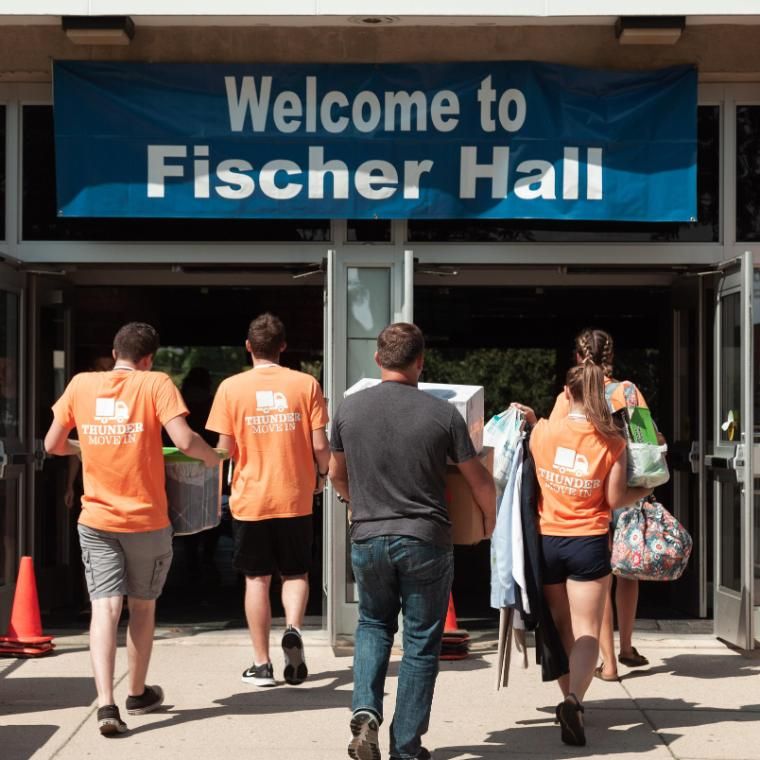Instructor: Brian Howell | Anthropology
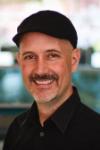 For most of human history it wasn’t really a question, but now it’s inescapable: who are you? Who is the “real you?”, what does it mean be an individual, a “self.” This class will use anthropological concepts and cross-cultural examples to think about this question as it relates to us. Asking “who am I?” is an existential question that can’t be answered without thinking about the communities in which we belong and the ones in which we don’t; we have to think about who is telling us the answers and who isn’t; we have to ask where are ideas about ourselves come from. This course will take the question of identity and use anthropological concepts to ask how we think about the “self,” how that idea came to exist, how it affects us now, and how we can think about this through the lens of the gospel. (2 credits, ANTH)
For most of human history it wasn’t really a question, but now it’s inescapable: who are you? Who is the “real you?”, what does it mean be an individual, a “self.” This class will use anthropological concepts and cross-cultural examples to think about this question as it relates to us. Asking “who am I?” is an existential question that can’t be answered without thinking about the communities in which we belong and the ones in which we don’t; we have to think about who is telling us the answers and who isn’t; we have to ask where are ideas about ourselves come from. This course will take the question of identity and use anthropological concepts to ask how we think about the “self,” how that idea came to exist, how it affects us now, and how we can think about this through the lens of the gospel. (2 credits, ANTH)

 What happens when risk takers have a boat, a gun, and a little bit of intel?
What happens when risk takers have a boat, a gun, and a little bit of intel?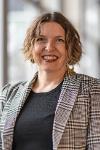 Which virus caused such facial scarring it ruined the marriage prospects of women across Europe, paved the way for European conquest of the New World, and was finally controlled with inoculation techniques that were known in Africa and Asia long before Europe? Which bacterium left its mark on ancient Egyptian mummies, was so romanticized in 18th century Europe that it drove beauty trends, and is still one of the three deadliest infectious diseases in the world in the face of increasing antibiotic resistance? From the Black Death to Covid-19, we will explore the microbes that have shaped history, examining some of history’s greatest epidemics from biological, epidemiological, and historical perspectives. We will ask both how people made sense of epidemics and what these epidemics revealed about the societies they afflicted, including social prejudice and inequality that continue to allow infectious disease to spread, in violation of God’s desire for humanity. Particular emphasis will be given to what the pandemic revealed about the world, how the pandemic shaped the world, and how Christians and the church responded to the pandemic. (2 credits, PHP)
Which virus caused such facial scarring it ruined the marriage prospects of women across Europe, paved the way for European conquest of the New World, and was finally controlled with inoculation techniques that were known in Africa and Asia long before Europe? Which bacterium left its mark on ancient Egyptian mummies, was so romanticized in 18th century Europe that it drove beauty trends, and is still one of the three deadliest infectious diseases in the world in the face of increasing antibiotic resistance? From the Black Death to Covid-19, we will explore the microbes that have shaped history, examining some of history’s greatest epidemics from biological, epidemiological, and historical perspectives. We will ask both how people made sense of epidemics and what these epidemics revealed about the societies they afflicted, including social prejudice and inequality that continue to allow infectious disease to spread, in violation of God’s desire for humanity. Particular emphasis will be given to what the pandemic revealed about the world, how the pandemic shaped the world, and how Christians and the church responded to the pandemic. (2 credits, PHP)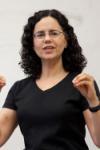 “It is a truth universally acknowledged…” that Pride and Prejudice holds a unique place within English literature. Not only is it a novel that literary scholars return to repeatedly as they work to interpret what Jane Austen accomplishes through her artistry, but it is also a story that continues to engage popular audiences through its many film, television, and literary adaptations. In this course, we will, first, look closely at the novel, placing it within its historical context and investigating what Austen is revealing through her unique style and characterization. Then, we will turn to various adaptations, exploring not only how they help us reflect back on the novel in new ways but also how they engage with the cultures from which they were created. (2 credits, ENGL)
“It is a truth universally acknowledged…” that Pride and Prejudice holds a unique place within English literature. Not only is it a novel that literary scholars return to repeatedly as they work to interpret what Jane Austen accomplishes through her artistry, but it is also a story that continues to engage popular audiences through its many film, television, and literary adaptations. In this course, we will, first, look closely at the novel, placing it within its historical context and investigating what Austen is revealing through her unique style and characterization. Then, we will turn to various adaptations, exploring not only how they help us reflect back on the novel in new ways but also how they engage with the cultures from which they were created. (2 credits, ENGL)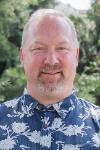
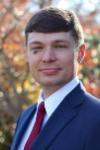 This course explores how neuroscientists study the human brain and the contemporary issues that arise. Lectures and lab experiences will focus on the tools used to study and understand the brain and their impact on understanding human thought, behavior, and emotion. Morning sessions will include lectures and seminar discussions that examine how the central nervous system is understood and related cultural/philosophical issues. Afternoon sessions will involve work with neural specimens, tissue, and other neuroscience lab techniques. (2 credits, NEUR)
This course explores how neuroscientists study the human brain and the contemporary issues that arise. Lectures and lab experiences will focus on the tools used to study and understand the brain and their impact on understanding human thought, behavior, and emotion. Morning sessions will include lectures and seminar discussions that examine how the central nervous system is understood and related cultural/philosophical issues. Afternoon sessions will involve work with neural specimens, tissue, and other neuroscience lab techniques. (2 credits, NEUR)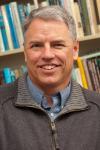 This course explores the field of medical ethics, which looks very closely at some of the moral issues that currently confront medical practitioners. It is taught in the philosophy department because, first, philosophers carefully explore the question, what does it mean to be a human being and what makes a human so valuable? This is absolutely critical to decide in order to know how humans ought to be treated. But this raises the second fundamental question: how can we decide what policies and procedures are morally appropriate for treating human beings? As Christians, we’ll strive for answers that reflect Biblical standards. We’ll do so, however, according to those fundamental moral principles that underwrite biblical guidelines. Some of the specific topics we’ll wrestle with include euthanasia and end-of-life care, fertility and genetic engineering, the role of race and gender in a just treatment, and the merits of human and animal experimentation. (2 credits, PHIL)
This course explores the field of medical ethics, which looks very closely at some of the moral issues that currently confront medical practitioners. It is taught in the philosophy department because, first, philosophers carefully explore the question, what does it mean to be a human being and what makes a human so valuable? This is absolutely critical to decide in order to know how humans ought to be treated. But this raises the second fundamental question: how can we decide what policies and procedures are morally appropriate for treating human beings? As Christians, we’ll strive for answers that reflect Biblical standards. We’ll do so, however, according to those fundamental moral principles that underwrite biblical guidelines. Some of the specific topics we’ll wrestle with include euthanasia and end-of-life care, fertility and genetic engineering, the role of race and gender in a just treatment, and the merits of human and animal experimentation. (2 credits, PHIL)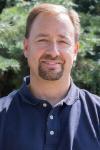
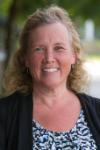 Big things happen in tiny spaces! Themes of nanoscience and nanotechnology span the news cycle, the natural sciences, and other applied areas of STEM, all to the glory of God! This course provides an interdisciplinary introduction to the field by engaging students in hands-on laboratory learning, while making specific connection to foundational ideas in biology, chemistry, and physics. Classroom learning sessions include, “What is Nanoscience and Nanotechnology?,” “Nanoscale Biology,” “Nanoscale Chemistry,” and “Nanoscale Physics,” as well as “Philosophical and Ethical Issues within Nanoscience.” Laboratory sessions will allow students to investigate the brilliant nanoscale features of butterfly wings, unveil size-dependent phenomena in Qdots, and participate in the latest government-sponsored research concerning biologically inspired nanovalves. Successful completion of a high school chemistry, biology, or physics course is recommended prior to taking this course. (2 credits, CHEM)
Big things happen in tiny spaces! Themes of nanoscience and nanotechnology span the news cycle, the natural sciences, and other applied areas of STEM, all to the glory of God! This course provides an interdisciplinary introduction to the field by engaging students in hands-on laboratory learning, while making specific connection to foundational ideas in biology, chemistry, and physics. Classroom learning sessions include, “What is Nanoscience and Nanotechnology?,” “Nanoscale Biology,” “Nanoscale Chemistry,” and “Nanoscale Physics,” as well as “Philosophical and Ethical Issues within Nanoscience.” Laboratory sessions will allow students to investigate the brilliant nanoscale features of butterfly wings, unveil size-dependent phenomena in Qdots, and participate in the latest government-sponsored research concerning biologically inspired nanovalves. Successful completion of a high school chemistry, biology, or physics course is recommended prior to taking this course. (2 credits, CHEM)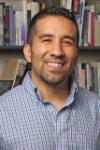 In this course, we will study some of the fundamentals of economics, including concepts such as ownership, prices, opportunity cost, supply and demand, and money (just economics). We will then build on our foundational understanding to reflect on normative questions (Just Economics). What should the objective of society be? How do we evaluate whether one outcome is better than another? And how does our faith influence our decisions? Along the way, we will enrich our exploration using real-world examples. How do we allocate limited vaccines? How do I determine what college to attend? How should we determine who gets into a particular class? Who can live in my neighborhood…or my country? (2 credits, ECON)
In this course, we will study some of the fundamentals of economics, including concepts such as ownership, prices, opportunity cost, supply and demand, and money (just economics). We will then build on our foundational understanding to reflect on normative questions (Just Economics). What should the objective of society be? How do we evaluate whether one outcome is better than another? And how does our faith influence our decisions? Along the way, we will enrich our exploration using real-world examples. How do we allocate limited vaccines? How do I determine what college to attend? How should we determine who gets into a particular class? Who can live in my neighborhood…or my country? (2 credits, ECON)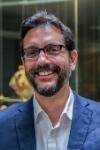 “Who do you say I am?” (Mt 16:15) continues to be the central question of the Christian faith with unique implications on salvation, redemption, and restoration. In this course we will explore how the New Testament and early Christians tried to identify and articulate a new "grammar of faith" that could both affirm the divinity of Christ (and the Holy Spirit) whilst at the same time confess God as one-in-three Persons without falling into polytheism. (2 credits, BITH)
“Who do you say I am?” (Mt 16:15) continues to be the central question of the Christian faith with unique implications on salvation, redemption, and restoration. In this course we will explore how the New Testament and early Christians tried to identify and articulate a new "grammar of faith" that could both affirm the divinity of Christ (and the Holy Spirit) whilst at the same time confess God as one-in-three Persons without falling into polytheism. (2 credits, BITH)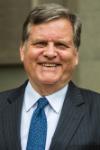 Wheaton College has prepared people for ministry since its founding. This course will help young people to consider and explore a calling to a full-time ministry or how to make their marketplace or professional career a ministry. There will be lectures from and discussions with Wheaton professors, Billy Graham Scholars from around the world, pastors, and representatives from mission agencies and para-church organizations. There will be exercises to help the students know and share their faith and to develop a pastoral and world Christian perspective. Students will put those ministry skills into practice on each other in the context of a comfortable but challenging classroom community. (2 credits, CFM)
Wheaton College has prepared people for ministry since its founding. This course will help young people to consider and explore a calling to a full-time ministry or how to make their marketplace or professional career a ministry. There will be lectures from and discussions with Wheaton professors, Billy Graham Scholars from around the world, pastors, and representatives from mission agencies and para-church organizations. There will be exercises to help the students know and share their faith and to develop a pastoral and world Christian perspective. Students will put those ministry skills into practice on each other in the context of a comfortable but challenging classroom community. (2 credits, CFM)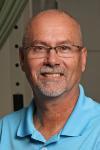 This course explores how the human body responds to exercise. Lectures and lab experiences will focus on basic cardiovascular, respiratory, and muscular responses. Morning sessions will include lectures and seminar discussions while afternoon sessions will primarily involve laboratory experiences where students will serve as their own study subjects! These labs will allow students to get a better sense of their own cardiovascular, respiratory and muscular health.
This course explores how the human body responds to exercise. Lectures and lab experiences will focus on basic cardiovascular, respiratory, and muscular responses. Morning sessions will include lectures and seminar discussions while afternoon sessions will primarily involve laboratory experiences where students will serve as their own study subjects! These labs will allow students to get a better sense of their own cardiovascular, respiratory and muscular health. 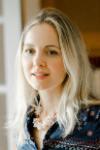
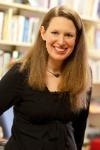 The Harry Potter series has been a global phenomenon, read by children and adults worldwide. Its success is easy to understand, given Rowling’s masterful storytelling. Under the surface of the entertaining stories is, however, substantive engagement with a variety of literary forms and long-standing symbolic traditions. This course will look at some of the literary features of the series, looking particularly at how the series may interact with Christian theological conversations such as the problem of evil, the nature of faith, visions of conversion and coming into life with Christ, and the virtue of hope. (2 credits, ENGL)
The Harry Potter series has been a global phenomenon, read by children and adults worldwide. Its success is easy to understand, given Rowling’s masterful storytelling. Under the surface of the entertaining stories is, however, substantive engagement with a variety of literary forms and long-standing symbolic traditions. This course will look at some of the literary features of the series, looking particularly at how the series may interact with Christian theological conversations such as the problem of evil, the nature of faith, visions of conversion and coming into life with Christ, and the virtue of hope. (2 credits, ENGL)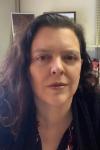
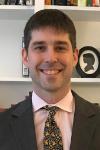
 In this course, English and
In this course, English and 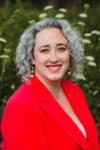 This course enables students to think more deeply about God, the Bible, and their life of discipleship. During the first week, students will learn how to read and teach the Bible with clarity and insight. During the second week, students will reflect on important Christian doctrines with the aim growing in love for God and their neighbors. (2 credits, BITH)
This course enables students to think more deeply about God, the Bible, and their life of discipleship. During the first week, students will learn how to read and teach the Bible with clarity and insight. During the second week, students will reflect on important Christian doctrines with the aim growing in love for God and their neighbors. (2 credits, BITH)